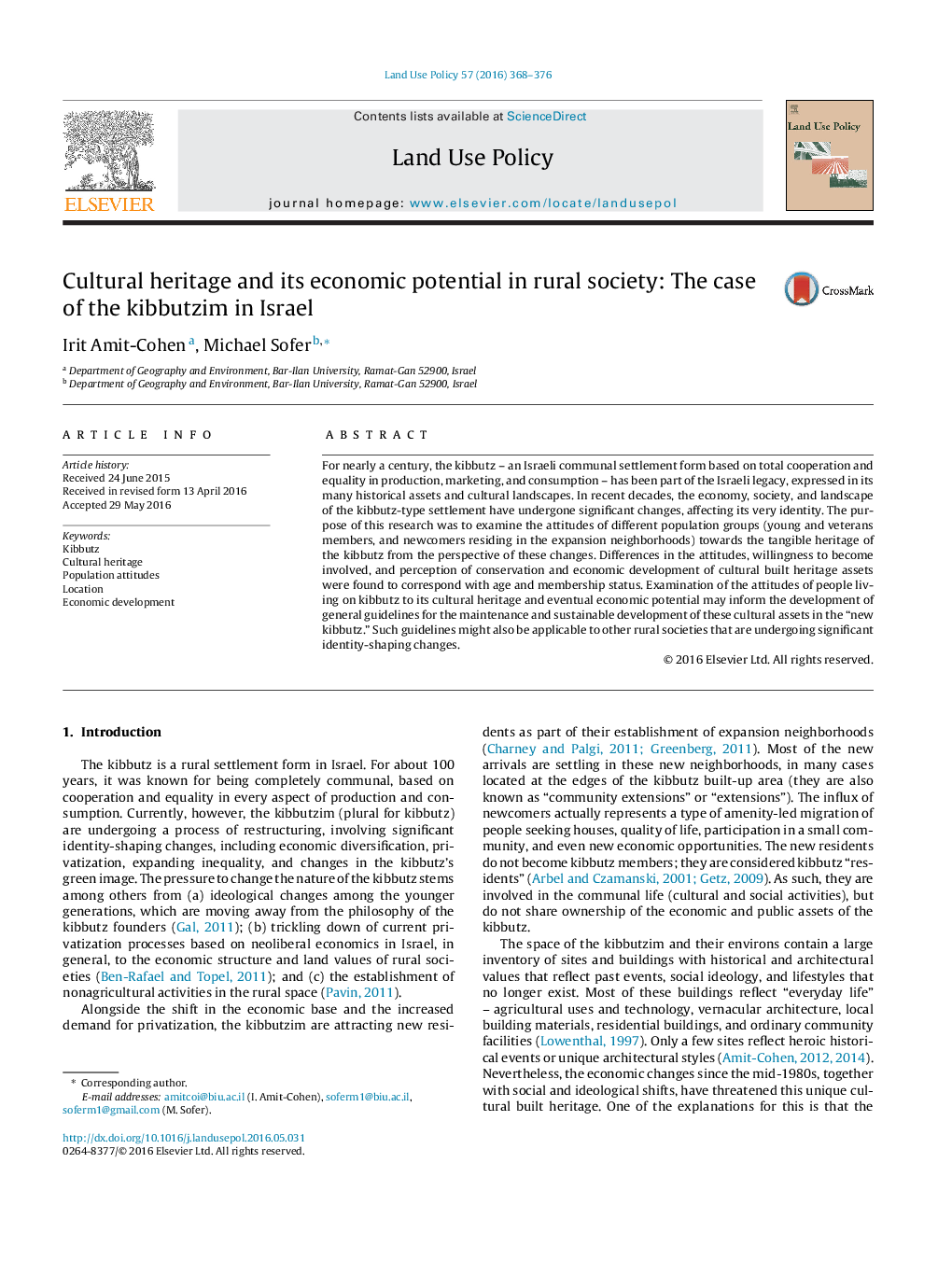| Article ID | Journal | Published Year | Pages | File Type |
|---|---|---|---|---|
| 6547046 | Land Use Policy | 2016 | 9 Pages |
Abstract
For nearly a century, the kibbutz - an Israeli communal settlement form based on total cooperation and equality in production, marketing, and consumption - has been part of the Israeli legacy, expressed in its many historical assets and cultural landscapes. In recent decades, the economy, society, and landscape of the kibbutz-type settlement have undergone significant changes, affecting its very identity. The purpose of this research was to examine the attitudes of different population groups (young and veterans members, and newcomers residing in the expansion neighborhoods) towards the tangible heritage of the kibbutz from the perspective of these changes. Differences in the attitudes, willingness to become involved, and perception of conservation and economic development of cultural built heritage assets were found to correspond with age and membership status. Examination of the attitudes of people living on kibbutz to its cultural heritage and eventual economic potential may inform the development of general guidelines for the maintenance and sustainable development of these cultural assets in the “new kibbutz.” Such guidelines might also be applicable to other rural societies that are undergoing significant identity-shaping changes.
Related Topics
Life Sciences
Agricultural and Biological Sciences
Forestry
Authors
Irit Amit-Cohen, Michael Sofer,
